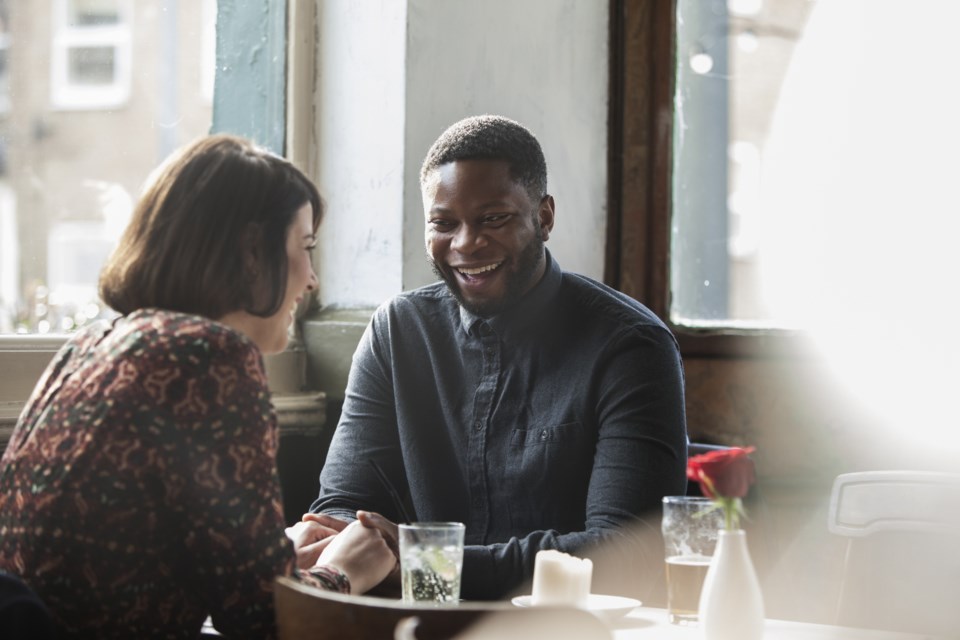As it gets colder and the holidays approach, singles enter “cuffing season.”
“Cuffing season” refers to single folks who “cuff” or become coupled up during the winter months. This seasonal trend typically begins in the fall and extends into the new year.
While the term was first defined by Urban Dictionary and largely gained traction on social media, it has become recognized widely enough to spark essays, playlists, and endless memes.
(‘Cuffing season’ was also short-listed for Collins Dictionary’s word of the year in 2017.)
But is there evidence to support cuffing season, or is it something created by the dating industry? According to relationship experts, people may be more likely to settle down in the cold.
“The desire to commit to a partner during the cooler months is reflected in online dating data,” said Jessica O’Reilly, a Toronto-based relationship expert and host of the Sex with Dr. Jess podcast.
O’Reilly points to Facebook data that showed more people were partnered up on the days around Valentine’s Day and Christmas.
She also highlights previous U.S. research that found an increase in keyword searches related to sex and “mating behaviours” in the winter months.
It’s important to note, however, that researchers found an uptick in dating searches during the summer, too.
Justin Lehmiller, a sex researcher and fellow at the Kinsey Institute, says this is likely because both the winter holidays and summer months bring more travel and vacations.
“Being in that vacation state of mind where people are more relaxed and have a chance to get away from work for a little bit, I think that opens up the door to the possibility of exploring relationships more,” he said.
Cold weather may affect mood
Lehmiller says there are factors, however, that are unique to cuffing season.
The author of Tell Me What You Want says some research suggests testosterone levels may increase in cooler months, which can affect sexual desire.
“There’s also research looking at how sunlight exposure affects production of serotonin in the brain — and that chemical is important for regulating mood,” Lehmiller explained.
Lehmiller said because there’s less sunlight exposure in dark, winter months, people may experience lower moods.
“Some people may try to compensate for that by going out and seeking social connections and relationships to boost their mood.”
The holidays can be emotional
Between watching endless romantic holiday movies and wanting to share a New Year’s kiss, the holidays can make people feel lonely if they’re single. There’s also the social pressures the season brings.
“Folks want someone to take to the company party or family gatherings,” O’Reilly said.
Lehmiller echoes this and says some people don’t like showing up single to these types of events — “especially when there’s family who may be putting pressure on us to get married and settle down,” he added.
What’s important to keep in mind, however, is that you should be up front and honest with a partner if you see the relationship being temporary.
O’Reilly says if you’re inclined to “cuff” yourself to someone every winter, ask yourself why.
If you aren’t really into a relationship but are dating anyway, it may be best to focus on self-love this season, she said.
“Do you need to change your attitude toward winter and appreciate the beauty of the snow instead of complaining about the cold? Do you want to do something to increase your energy levels and mood by working out, dancing, meditating, painting or writing?” she said.
“See if you can shift your perspective just a tiny bit to appreciate the weather.”
- Global News
Follow @lolahensley